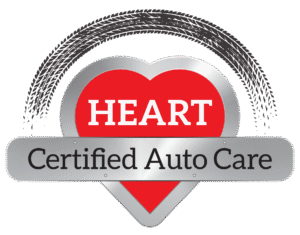Ensuring Accuracy in Jeep Evap System Test in Evanston


What is the EVAP System?
Key Components of the EVAP System:
- Charcoal Canister: Stores fuel vapors until they can be purged into the engine.
- Purge Valve/Solenoid: Controls the flow of fuel vapors from the charcoal canister to the engine.
- Vent Valve: Regulates the release of excess pressure.
- Fuel Tank Pressure Sensor: Monitors the pressure within the fuel tank.
Understanding these components is essential when performing a Jeep Evap system Test in Evanston to ensure every part is functioning correctly.
The Importance of the EVAP System
- Reducing Emissions: Prevents harmful hydrocarbons from entering the atmosphere.
- Improving Fuel Efficiency: Recirculates fuel vapors into the combustion process.
- Ensuring Vehicle Performance: Keeps the fuel system operating efficiently.
- Complying with Legal Standards: Meets state and federal emission regulations.
Common Issues in the EVAP System
Typical Problems Include:
- Faulty Charcoal Canister: Can become clogged or damaged.
- Defective Purge Valve: May stick open or closed, affecting vapor flow.
- Leaking Gas Cap: A common source of EVAP system leaks.
- Damaged Hoses or Lines: Wear and tear leading to leaks or blockages.
- Malfunctioning Sensors: Inaccurate readings affecting the system’s operations.
DIY vs. Professional Help
DIY Considerations:
- Basic Repairs: Tasks like replacing the gas cap or inspecting hoses can be done by most car owners.
- Tools and Equipment: Ensure you have the appropriate diagnostic and repair tools.
- Skill Level: Complex repairs might require professional expertise.
Professional Assistance:
- Expert Diagnosis: Professionals can accurately diagnose and repair complex issues.
- Time and Convenience: Saves time and ensures the job is done right.
- Warranty Coverage: Professional services often come with guarantees on workmanship and parts.
Understanding the EVAP System Test Process
Step-by-Step Guide to the EVAP System Test:
- Pre-Test Inspection: The first step involves a thorough visual inspection. Professionals will check for obvious issues such as a loose gas cap or damaged hoses, which can be common culprits behind EVAP system problems.
- Use of Diagnostic Tools: Technicians use an OBD-II scanner to read diagnostic trouble codes (DTCs) related to the EVAP system. This tool retrieves error codes stored in the vehicle’s computer, providing critical information about potential issues.
- Performing a Smoke Test: A smoke test is essential for detecting leaks within the EVAP system. During this test, technicians introduce smoke into the system and observe where it escapes, pinpointing any leaks that might be present.
- Functional Testing of Valves and Sensors: Valves and sensors play a crucial role in the EVAP system. Using a multimeter, technicians test these electrical components to ensure they are operating correctly. This step is vital for diagnosing specific component failures.
- Pressure Testing: To verify the integrity of the EVAP system, pressure testing is conducted. The system is sealed, and controlled pressure is applied. Technicians then monitor for any pressure drops, indicating leaks or weaknesses in the system.
- Document Findings: Throughout the process, all data and observations are meticulously documented. This comprehensive record helps in planning effective repairs and provides a reference for future diagnostics.
Selecting the Right Service Center
Factors to Consider:
Reputation:
Experience:
Certifications:
Guarantees:
State-of-the-Art Equipment:
Customer Service:
Convenience:
Cleanliness and Organization:
A clean and well-organized service center often reflects the quality of work performed. It indicates attention to detail and a commitment to maintaining a professional environment.
Choosing a reputable and well-qualified service center for your Jeep ensures it receives the best care for its EVAP system. This proactive approach not only ensures compliance with emission standards but also maintains your vehicle’s performance, enhancing your driving experience and contributing to a cleaner environment.
Final Thoughts on Jeep Evap System Test in Evanston
Ensuring the accuracy of a Jeep Evap system Test in Evanston is vital for maintaining your vehicle’s performance, improving fuel efficiency, and complying with emission regulations. By understanding the components of the EVAP system, conducting thorough tests, and prioritizing repairs, you can effectively manage and resolve any issues that arise. Regular maintenance and choosing the right service center further enhance the reliability of your Jeep’s EVAP system.
If you’re in Evanston and need expert care for your vehicle, including Jeep Evap system Test in Evanston, HEART Auto Care is the place to go. Our experienced technicians are dedicated to providing top-notch service for all your auto repair needs. Maintaining your EVAP system or addressing other vehicle concerns, we have you covered; contact us today for reliable, professional car maintenance.









